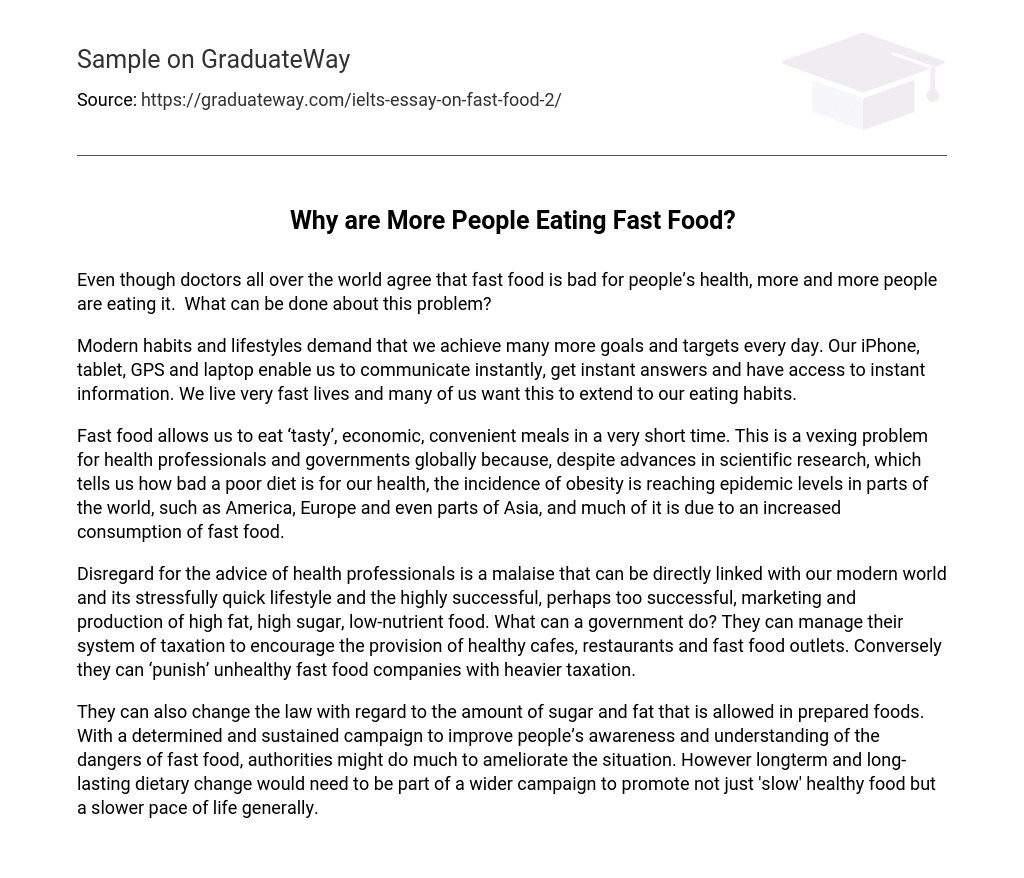Even though doctors all over the world agree that fast food is bad for people’s health, more and more people are eating it. What can be done about this problem?
Modern habits and lifestyles demand that we achieve many more goals and targets every day. Our iPhone, tablet, GPS and laptop enable us to communicate instantly, get instant answers and have access to instant information. We live very fast lives and many of us want this to extend to our eating habits.
Fast food allows us to eat ‘tasty’, economic, convenient meals in a very short time. This is a vexing problem for health professionals and governments globally because, despite advances in scientific research, which tells us how bad a poor diet is for our health, the incidence of obesity is reaching epidemic levels in parts of the world, such as America, Europe and even parts of Asia, and much of it is due to an increased consumption of fast food.
Disregard for the advice of health professionals is a malaise that can be directly linked with our modern world and its stressfully quick lifestyle and the highly successful, perhaps too successful, marketing and production of high fat, high sugar, low-nutrient food. What can a government do? They can manage their system of taxation to encourage the provision of healthy cafes, restaurants and fast food outlets. Conversely they can ‘punish’ unhealthy fast food companies with heavier taxation.
They can also change the law with regard to the amount of sugar and fat that is allowed in prepared foods. With a determined and sustained campaign to improve people’s awareness and understanding of the dangers of fast food, authorities might do much to ameliorate the situation. However longterm and long-lasting dietary change would need to be part of a wider campaign to promote not just ‘slow’ healthy food but a slower pace of life generally.





